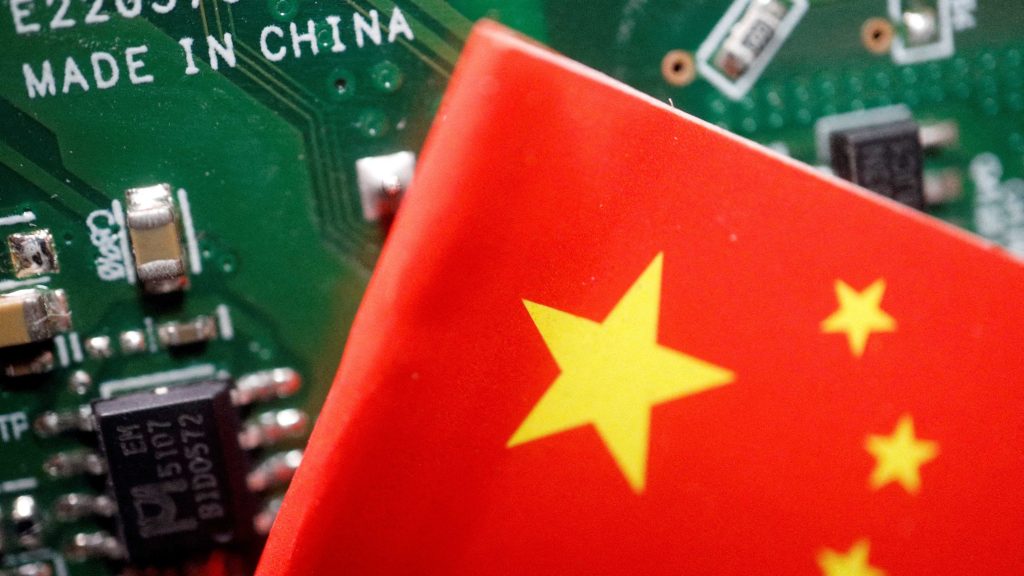
China’s state-backed chip investment fund has invested 14.56 billion yuan ($1.99 billion) in a memory chip company called Changxin Xinqiao, records showed.
The deal saw China Integrated Circuit Industry Investment Fund, also known as the “Big Fund”, contribute to 33.15% of the total registered capital of Changxin Xinqiao, according to an update dated Oct. 26 to the company’s registration information on the National Enterprise Credit Information Publicity System (NECIPS).
According to company registration website Qichacha, Changxin Xinqiao was founded in 2021 in Hefei city, in the eastern Anhui province.
Its general manager is Zhao Lun, who is the general manager of ChangXin Memory Technologies, one of China’s leading memory chip companies.
Changxin Xinqiao has applied for building a manufacturing base of 12-inch memory wafer, according to the official NECIPS database. The registry data didn’t specify the nature of the project, but it will be the first in China to go into mass production for integrated dynamic random access memory (DRAM) design and manufacturing, according to a statement released last year in June by a contractor for the project.
Changxin Xinqiao and the Big Fund did not immediately respond to Reuters’ requests for comment.
The Big Fund’s latest investment comes after it invested 13 billion yuan into Yangtze Memory Technologies (YMTC) earlier this year, marking one of its largest investments in recent years.
YMTC, China’s only player in the global NAND memory market, has been aggressively expanding production capacity and R&D with the help of state subsidies. YMTC was blacklisted by the United States in 2022 over fears that it could divert U.S. technology to Huawei Technologies Co Ltd
Changxin Xinqiao’s capital raising from the Big Fund is part of a larger registered capital expansion that involved existing investors, Changxin Xinan and Hefei Xinyi, increasing their capital contribution by 10.4 billion yuan and 14 billion yuan respectively.
Hefei Xinyi is backed by a couple of investment platforms linked to the state asset regulator in Anhui province, according to entries in the National Enterprise Credit Information Publicity System.
China launched the Big Fund in 2014 as a means to accelerate its semiconductor industry, which is considered to lag behind that of the United States, Taiwan and South Korea. The organization raised 138.7 billion yuan for its first fund, and 204 billion yuan for its second fund.
Reuters reported last month that the Big Fund aims to raise about $40 billion in another round, as China ramps up efforts to catch up with rivals.
The fund has however also been embroiled in a corruption scandal that led to a probe into its former head last year.
(Reporting by Yelin Mo, Roxanne Liu in Beijing and Brenda Goh in Shanghai; Editing by Simon Cameron-Moore)